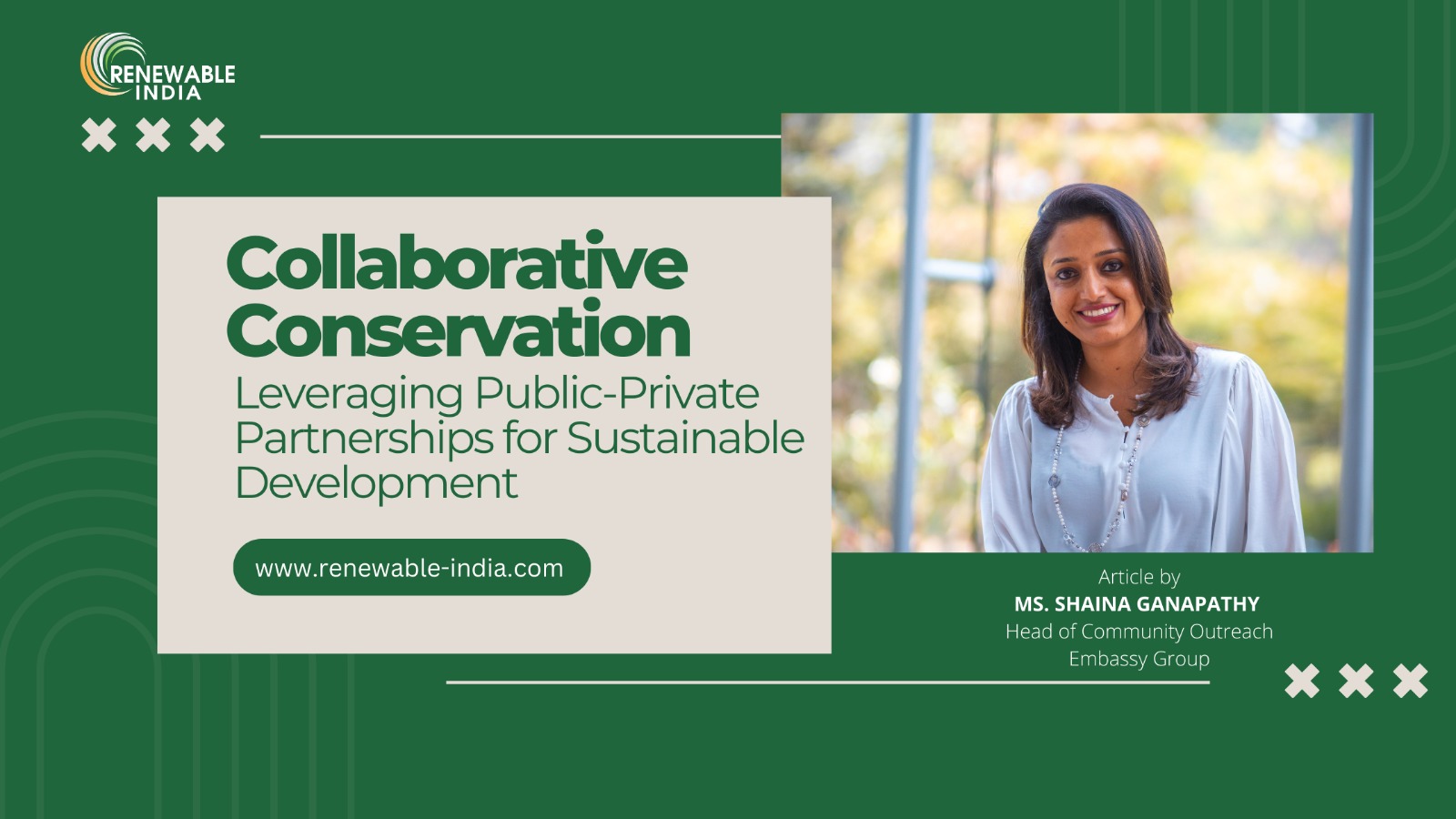
In the face of escalating environmental challenges, the need for effective conservation efforts has become increasingly urgent. Governments, private sector entities, non-governmental organisations (NGOs), and local communities are recognising the power of collaboration through Public-Private Partnerships (PPPs) to drive impactful environmental conservation projects, particularly in rural areas.
PPPs are collaborative ventures between governmental bodies and private entities, designed to leverage the strengths of both sectors towards a common goal. In the realm of environmental conservation, these partnerships facilitate the pooling of resources, expertise, and technology, thereby enhancing the effectiveness and sustainability of conservation initiatives.
India, with its vast and diverse landscape, faces significant environmental challenges that threaten the livelihoods of millions—in the present and the future.
India faces significant environmental issues, with air pollution being the most critical. According to the 2021 World Air Quality Report, India has 63 of the 100 most polluted cities, with New Delhi topping the list. Water pollution is rampant, with 70% of surface water unfit for consumption due to inadequate waste management. Food and water shortages are exacerbated by climate change, causing extreme weather and agricultural disruption. Waste management struggles with rapid urbanization, leading to vast amounts of untreated waste. Lastly, biodiversity loss is alarming, with significant declines in species due to habitat destruction and pollution.
Public-private partnerships (PPPs) have emerged as a promising approach to tackle these challenges. By leveraging the strengths and resources of both the public and private sectors, PPPs can drive effective and sustainable environmental conservation efforts.
Today, our challenges demand a unified effort from businesses, government, and nonprofits. Corporations must recognise that for sustainable growth, shareholder satisfaction, and employee retention, active participation in social development is crucial. By pooling resources and aligning visions and priorities, organisations can maximise benefits, reduce environmental impact, and pursue net-zero commitments. Businesses also have greater success when they engage with local leaders and governments to offer more targeted and impactful solutions.
(i) Public Sector Contribution: Governments often have limited budgets for environmental projects. PPPs allow for the pooling of financial resources, enabling the execution of large-scale conservation projects that might otherwise be unaffordable.
(ii) Private Sector Investment: Private companies usually have substantial financial resources and are often willing to invest in sustainable projects that promise long-term returns. These investments can fund the development and implementation of innovative conservation practices.
(i) Research and Development: The private sector is a hub of innovation, especially in fields like renewable energy, waste management, and water conservation. By partnering with the government, these innovations can be adapted and scaled to suit specific needs and demographics, such as in rural India.
(ii) Technology Transfer: PPPs can facilitate the transfer of cutting-edge technologies to rural areas, enhancing the efficiency and effectiveness of conservation efforts. For instance, advanced irrigation systems, solar-powered solutions, and waste recycling technologies can significantly benefit rural communities.
(i) Government Regulations and Oversight: The government provides the necessary regulatory framework and oversight to ensure that conservation efforts are in line with national and regional policies.
(ii) Private Sector Efficiency: Private companies often bring to the table management efficiency and a results-oriented approach. Their expertise in project planning, implementation, and monitoring can lead to more effective and timely execution of conservation projects.
(i) Public Awareness Campaigns: Governments can leverage the marketing expertise of private companies to run effective public awareness campaigns about environmental conservation. These campaigns can educate rural communities about the importance of conservation and encourage sustainable practices.
(ii) Corporate Social Responsibility (CSR): Many private companies have robust CSR programmes focused on environmental sustainability. Through PPPs, these programmes can align with national conservation goals, creating a unified approach to community engagement and education.
Public-Private Partnerships are proving to be pivotal in addressing the multifaceted challenges of environmental conservation in rural areas. By harnessing the complementary strengths of governments, private sector entities, NGOs, and local communities, these partnerships create synergies that amplify the impact of conservation efforts. Moving forward, fostering collaboration and shared responsibility will be crucial in achieving sustainable development goals and safeguarding the planet’s biodiversity for future generations.
Leave a Reply